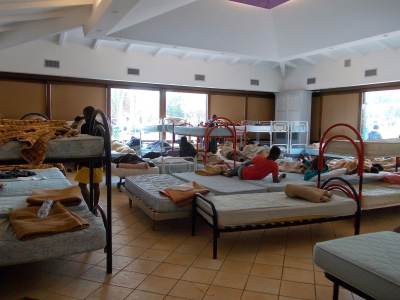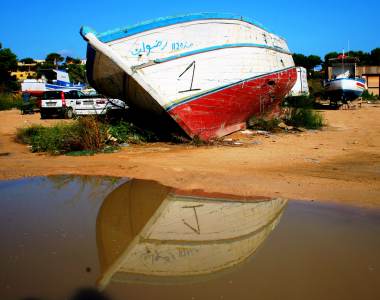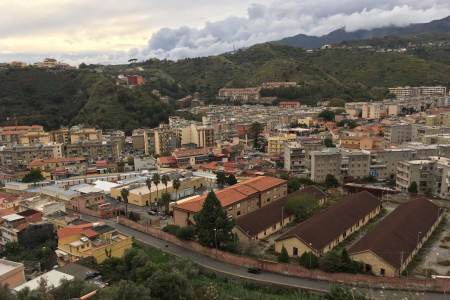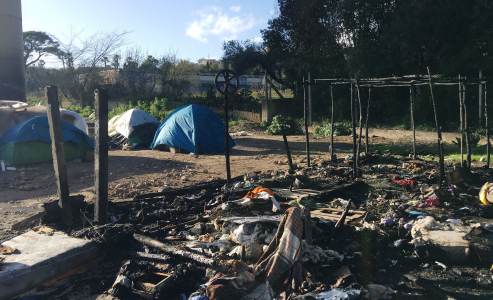Migrants, the two faces of Lampedusa’s hotspot. Grasso: «Model». Activists: «Urine on the ceiling»
by MeridioNews
Today, the president of the senate visited the identification centre of the island. «To be overtaken as an absolute valid example of reception and solidarity», he stated. Contrary to this, the Askavusa collective published pictures of infiltration and urine bottles, filthy mattresses and dilapidated electrical systems.
«This is the first entry point in Europe, here’s where Europe begins or ends». During this morning‘s visit of Lampedusa’s hotspot, Senate President Pietro Grasso has pointed out, once again, the central position of the island. Having functioned for many years as the crossroads of the landing of migrants and narrated as a model of welcoming and solidarity, Lampedusa is first of all, as the former judge states, «a test stands of the idea of Europe». Yet, those who live on the island every day, denounce the situation of the centre Contrada Imbriacola as being far from exemplary. A ceiling infiltrated by urine, migrants forced to urinate in plastic bottles, filthy mattresses, electrical and plumbing systems in dilapidated conditions. This is what emerges from the photos published by the Askavusa collective, engaged for years on the island of Lampedusa in defence of migrants’ rights.
«A few days before every official visit – the activists write – the centre is emptied and cleaned and there won’t be new arrivals before the visit ends.” The images and videos online instead document the degradation visible in some parts of the structure. According to the testimonies collected directly by our centre and reported by Askavusa, forms of pressure and obstruction are used to carry out the accreditation procedures. «We know that children often live in promiscuity with adults – they state – and that the toilets of the children’s‘ area have been closed after one of the first floor bathrooms poured urine in a room on the ground for weeks, where part of the migrants were sleeping. Children are forced to urinate in plastic bottles or use the bathrooms of the adults which are almost always flooded and provide poor sanitary conditions».
To support the complaints, they publish the photos on their blog. «They date back to one week ago – says activist James Sferlazzo, also known as a songwriter -. We gave them to the journalists, even to those who will be attending today‘s Lampedus’Amore (an event which will be inaugurated this evening, organized in memory of journalist Christian Matano who died an early death, Ed.), and no one has taken them. I am not saying that the press has to tell the truth, but at least they could gather the news we have provided». According to the spokesman of the Askavusa collective, the reason for the silence is clear. «The game is to ignore and isolate – he continues – making us invisible as much as it’s happening with the migrants over here. If they talk about it, it‘s only within a rhetoric frame that they had prepared beforehand».
President Grasso has not seen it as it‘s been documented by the activists, he rather met the workers and volunteers of the humanitarian organizations working within the Imbriacola centre, he spoke with some migrants and asked to meet the guys who will participate at tomorrow night’s football match Lampedusa vs the rest of the world, which includes people from Lampedusa, migrants, actors, musicians, journalists, politicians and football players. In order to express his appreciation for «the level of cooperation among the many forces» within the hotspot, the politician of the Democratic Party said that «this can be overtaken as an absolutely valid model for the reception and solidarity, but also for the future integration of our country».
A representation, often widespread in the media, but which Sferlazzo opposes. «Actually, the hotspot and the whole island is a strategic military base – he rebuts -. As this type of image brings tourism, the local people do not protest against the use of this stage, made by the territory. Many of them are those who work inside the hotspot. And this story also becomes a way to ask for money from the European Union».
Andrea Turco
Translation: Catherine Scholz






